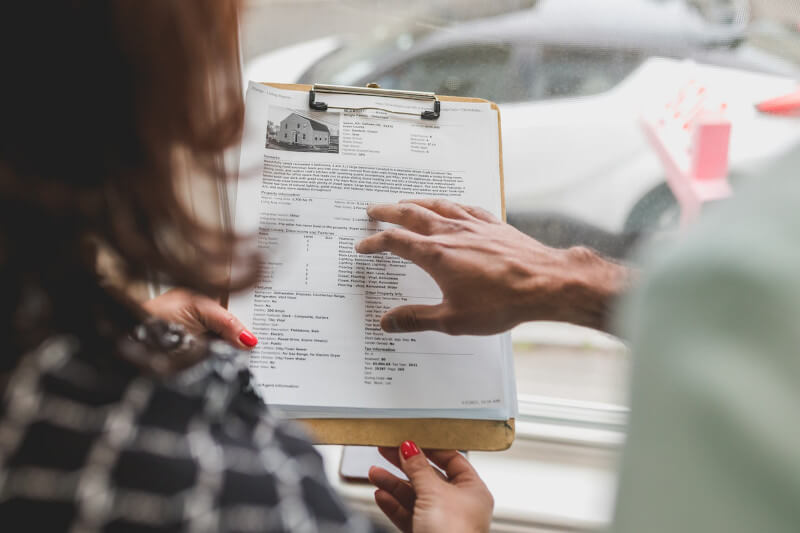How to Evaluate the Benefits of Having a Home Inspection Done
Price is only concerned with finding a good bargain, whereas value is concerned with meeting the actual requirements of the client (buyer, agent, or seller). To further clarify, who are the parties involved in a real estate transaction, specifically the customer, the agent, and the seller, and what are their requirements? All parties involved in a real estate transaction have the same primary requirements, which are as follows:
- The capacity to make an educated choice, with no unpleasant surprises or follow-up negotiations following the transaction.
- The ability for all stakeholders to begin negotiations on a reasonable agreement that is in their best financial interest.
What most house inspectors offer:
- Experienced and well-trained inspectors can unearth the more significant flaws in real estate while avoiding the temptation to pick apart the more insignificant flaws.
They will provide a report document that includes the following:
- Recognizes all serious flaws.
- Explains what led to the problem in the first place.
- Offers a practical solution, which may include restoration work, repair, or renewal
- Provides a precise estimate of the price tag for this corrective measure
- The negotiation period is given a significant boost by the information that is provided in the report.
- The purchaser is aware of the problem as well as the associated cost of repairing it.
- This data gives the prospective purchaser more agency.
After reviewing the report, the seller is aware of the issues that exist with the home and is also aware of the fact that the seller is now obligated to reveal these issues to other prospective buyers if the customer who established the official report chooses to “walk away.” If this occurs, the seller will have four options available to them:
- Either fix the problems with the item before the sale is finalized
- Agree on a price that is fair, taking into consideration not only the “resale value” of the estate but also the expense of repairing significant flaws, if necessary.
- Permit the customer who proposed the report to “walk away” from the transaction, and then confront the legal obligation to communicate any flaws found to any future buyers who may be interested in purchasing the property
- Commit fraud by attempting to sell the faulty house to another individual while concealing the identified flaws in the property from the potential buyer.
The knowledgeable real estate agent, who has access to the outcomes of the inspection, is in a position to act as an “impartial arbiter.” The actual worth of the real-estate agent lies in the fact that they act as property professionals and guide the discussions between the seller and the buyer based on the data included in the inspection report as well as current market values.
Home Inspectors’ Frequently Asked Questions

Before I Purchase a House, How Do I Go About Getting an Inspection?
You must never sign an “Offer to Purchase” (OTP) contract before even making your offer contingent on you acquiring and being pleased with an impartial inspection report. Home inspectors who possess qualifications in South African Building Standards, such as the ones provided by SATA, are necessary for determining whether or not a building complies with South African construction standards.
What Kinds of Things Will Cause a House to Fail Its Inspection?
There is no such thing as a “pass” or “fail” rating on a home inspection. A home inspection report is nothing more than simple documentation of all of the significant flaws that the inspector has found. This data facilitates the potential buyer to make educated decisions, the first of which is whether or not to buy the property, and the second of which is what would be reasonable cost taking into account the flaws that were found in the home inspection report.
What Kinds of Things Are Looked at During a Standard Home Inspection?
A standard home inspection will consist of a visual examination of all of the vital areas, which are defined as those in which significant defects may present potential health and safety hazards. The roof covering and waterproofing, the roof cavity, the heated water geyser, the walls, ceilings, and floors, as well as the plumbing and electrical installations, all need to be inspected as part of this process.
In most cases, the inspector will also evaluate the dangers posed to personal safety, as well as any potential for flooding or fire. The customer may be willing to pay a higher price for a Comprehensive inspection, which would record all crucial and cosmetic flaws that were observed, or for a limited area inspection, such as an inspection that is confined only to the roof or just to stormwater management concerns.
How Much Does It Cost to Have a Home Inspected?
The price of a home inspection is determined by the square footage of the home being inspected as well as the level of inspection that is being performed (a limited area inspection, a vital inspection, or a comprehensive inspection) (say the roof only). Many Home Inspector companies base their quotations on a room count and a typical evaluation of the entire estate would fluctuate between R3,000 and R5,000. A check for a large house could cost even more.
Who is Responsible for Paying for the Full Inspection When Purchasing a House?
In most cases, the potential buyer is responsible for paying for the inspection, but there are no hard and fast rules regarding this matter. As a component of the mandated by law condition disclosure by the owner that is required by the Property Practitioners Act, the owner (seller) will often pay for the initial inspection out of their pocket. As a standard part of their service, real estate agents frequently choose to pay for the inspection. This is done to ensure that the transaction is equitable for both parties involved.
When It Comes to a Home Inspection, Are Sellers Obligated to Fix Everything That is Found?
There is no legal requirement for sellers to address issues that are raised in a home inspection report. The buyer and the seller are going to have to agree on this matter. A qualified real estate agent will typically guide both the buyer and the seller, taking into consideration the asking price of the house, the projected value of any necessary repairs, and the correlation between the asking price of the home and a comparison to the market research of other residences.
Must I Avoid a Home Inspection?
Homebuyers should never forego getting a home inspection and should always insist that they make an adequate inspection report on the condition of the sale of the property. There is no way for anyone to know for certain the status of a roof covering or the structural roof timbers unless someone goes up on the roof and inspects these essential components.
The same can be said for the geyser of boiling water. Wall cracks and dampness can only be diagnosed by a trained professional, and only a licensed professional can decide how severe and substantial these deficiencies are. Home inspections represent the only realistic way for potential buyers to ensure that they are making decisions based on accurate information.
Is It Possible for a Home Inspection to Kill an Agreement?
Honestly, a home inspection has the potential to “kill an agreement” if the inspector finds serious flaws in the real estate being inspected that haven’t been divulged to the potential buyer by either the owner of the property or the real estate agent representing the seller. There are just two possible explanations for the failure to disclose serious flaws to prospective buyers: ignorance or dishonesty.
Neither explanation is acceptable. The majority of the time, when a home inspector discovers that a property has serious flaws, the cause is that the owner and the agent were unaware of potential or actual flaws and hazards in areas such as the roof, the roof cavity, and about the hot water geysers.
How Long Should It Take to Conduct a Home Inspection?
The on-site time required for a typical home inspection is approximately three hours, but this time frame can vary greatly depending on the age and complexity of the structures that are being inspected. Under typical circumstances, inspection contractors will send out their inspection report no later than the following business day after the home has been inspected.




